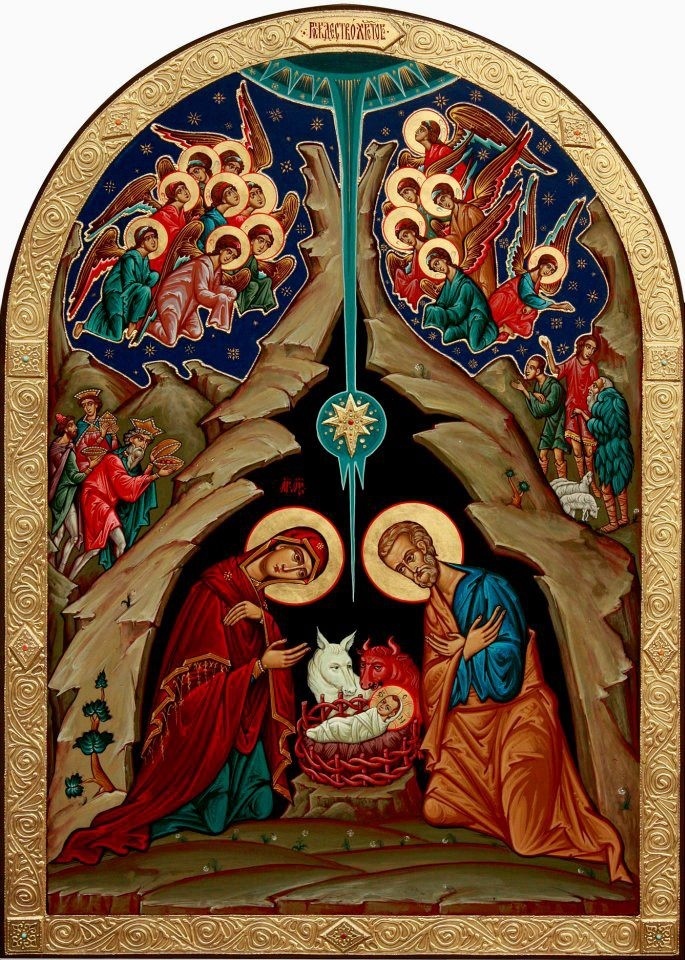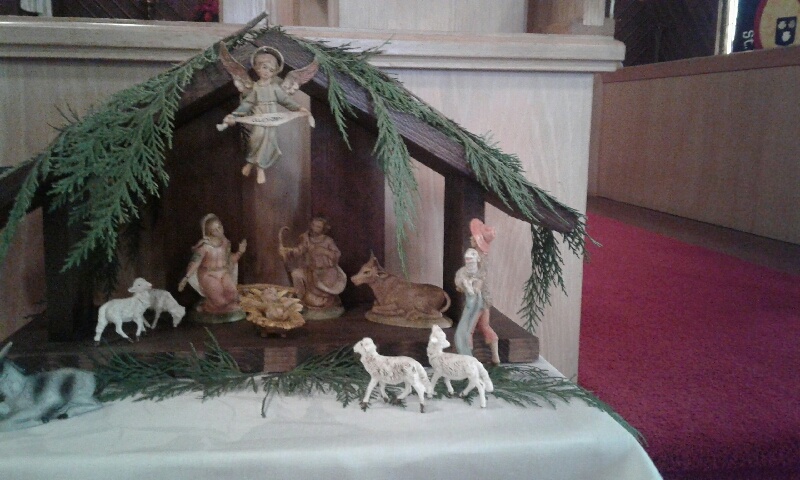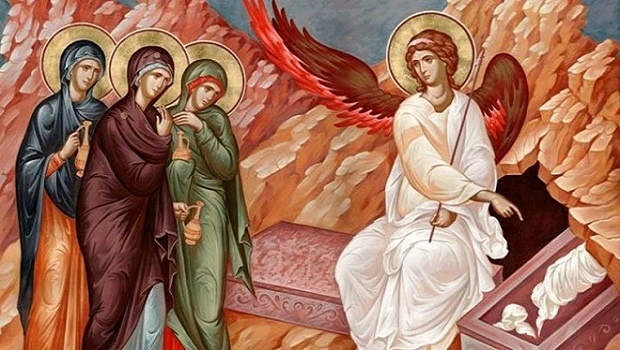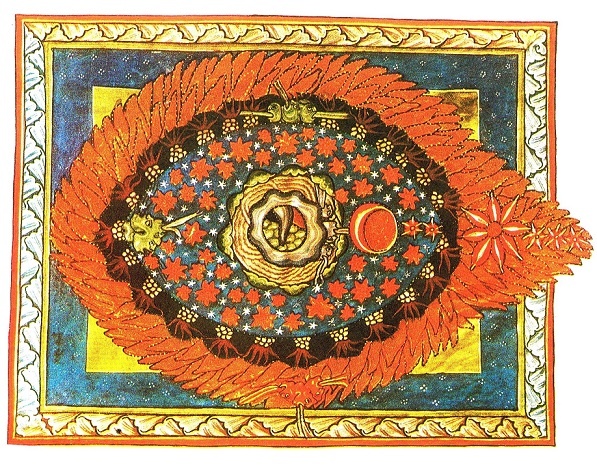
Christmas Eve, 11:00
24 December 2019
This evening’s readings are:
Isaiah 9:2-7
Psalm 96
Titus 2:11-14
Luke 2:1-20
Click here to access these readings.
So, this is something of a night owl sermon, but I’m assuming that if you’re here for the 11:00 Mass on Christmas Eve, you’re something of a night owl. If you’re a morning person, then cool, just wait a bit, I’m going to get to some morning stuff soon, but for a moment, I want to preach about how wonderful it is to go to church late at night.
I’m a new priest, so I haven’t done many late-night Christmas services. As a child, my family went to the evening service at our local church just up the hill from where we lived. This was in New Jersey, and the church was in the New England style: white walls and tall, tall windows. Outside, everything was dark and sleepy, and this only made the light inside shine the brighter. There were greens and red banners and ribbons all over the place, people were sleepy but awake and strangely energized with that joy of Christmas. We’d sing Christmas carols, listen to the sermon, then leave into the frosty air and drive home to sleep and await Christmas morning.
But there is something even more different about going to church in the dead of the night. Again, if you’re a night owl, this certainly isn’t the dead of the night (that’s like, what, 3:00?), but by this time, we’ve finished with the work of the day, put away the plates and left-overs from dinner, tucked in the kids, and finally settled down in a favorite chair, maybe cracked open a book. But to go out at this late hour, to put on a coat instead of pajamas, and to come to church to sing and to praise God with our fellow Christians – there’s a grace to this, a special grace and joy. On nights like this, I personally can really feel that God has made the whole Creation new in Jesus Christ. Late nights like this are like fresh snow on the ground, or a pristine starry sky, or that first breath of spring on the air, the golden light of dawn or the blue, twilit evening.
Christmas Eve is about moving from Advent to Christmas, from the time of waiting, of expectation, of promised joy and light, to the fulfillment of that light, the answer to the promise, to the presence of Jesus Christ. And here, especially at this late service, is when we experience this turn, this turn from “how long, O Lord, how long” to “I am here.” And we know this turn, don’t we? We know those times when we have waited, patiently or impatiently, upon the Lord. We know the Lord’s call on us to wait and to expect, for God does not come at our beck and call as if, when we snapped our fingers, God comes running. But we also know the coming and the presence of God, when God swoops into our lives and fills us, fills us to the brim and then more, so that our cup runneth over and we know that God is good and holy and alive.
And it is at this service, deep into the night, when we experience that turn, when we gather together and see Jesus coming and experience him here. It’s like driving before dawn (I wonder if you’ve experienced this, too). I’ve been going up to Eugene and Salem a lot recently for meetings, and each time I have to leave super early. And it’s usually pitch black, my eyes are droopy, and I’m alone on the roads heading east on 42. And the whole time I’m wondering, when will it be light so I can wake up? When will dawn come? And I look to the sky, through the trees or around the mountainsides, but it is still dark. Dawn never comes when I wanted it. But then – and usually it is when I least expect it – I turn a corner and my eyes suddenly see the smallest bit of blue peaking through the branches, blue almost at the edge of sight. And I know: it is morning, and light begins to bathe the river valley and everything is glistening and new and beautiful.
We know this turn, I think, this turn from darkness to light, from despair to hope, from sin to life. We know it in our own hearts, for Christ has come to us like the dawn over the mountains, like birdsong on a cool spring morning. Some of us know the exact day and hour, for others, God has been a presence that we have only slowly come to understand and see and know; but whatever the case, we know that new light and we know its freshness.
And Christmas is that specific day, that most blessed and holy day, right next to Easter itself, when we celebrate not only our own relationship with God in Jesus Christ but the birth of that light into the whole of Creation, made ready for all, for humanity and beyond. For when God came to us here in this world, he did not come just for a few or some folks here and others here, but for everything, in order to make the whole Creation new. Our Salvation is part of something, part of something great and mighty, a work of God that reaches to the end of time and back. For God so loved the world that he gave his only Son, so that all might come within the reach of his heavenly grace.
And we Christians, we Christians who celebrate here the birth of our Savior, and we Christians all around the world, we are part of that good work of God. For we Christians are called on not only to be saved but to be the light of God in the darkness. Our salvation is not ours alone, something that we can keep to and for ourselves. We can’t stick our salvation in a lock-box under our bed or in a safe-deposit box at the bank. Our salvation is not some nice heirloom that we’ve received from our grandmother that we pout on the mantlepiece so that no one (and especially no one with dirty hands) can fiddle with it, and our salvation is not a piece of jewelry that we wear on our fingers.
Our salvation is a flaming torch, and it is a great fire and a great light that is not to be kept secret but is to light the way in the darkness. Have you ever met anyone for whom this is true? I know I have. By the loving grace of God I have met many people in my life who are alive with the burning light of God. For some of them, it’s their eyes and their faces: I feel hope just in looking at them; for others, it’s their calm presence that speaks love without even parting the lips. I see that flame in our presiding bishop, Michael Curry, as he dances around the church when he preaches; I’ve seen it in the dedication of a teacher I knew in Japan, who I knew (and was helped by) for two whole years before, on my last day before returning home, he mousily told me that he was a Christian.
But however it shines, that light is a healing light. It is a light of love and of hope and of Life, for it is the light of Jesus Christ, born this day two thousand years ago. It is the light of God Almighty, who created the heavens and the earth and who guides all things to fulfillness and completion. It is the light of Jesus, who is also God, born in a dingy old manger. It is the light of all that is good and all that is beautiful, because it is the light of God, and it will continue to burn until the end of this age and beyond.




